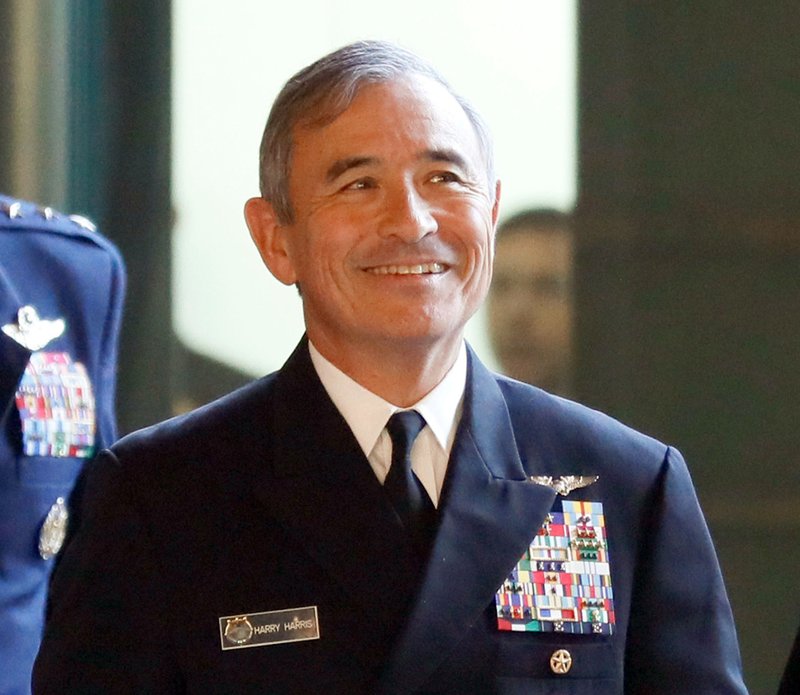CANBERRA, Australia -- Australia's prime minister said Wednesday that the commander of U.S. forces in the Pacific, Adm. Harry Harris, will not become Washington's next ambassador to Australia and will be posted to South Korea instead.
Prime Minister Malcolm Turnbull said he was disappointed but not perturbed by the decision, which he learned about earlier this week.
President Donald Trump had nominated Harris in February to become Australia's next ambassador.
"I'm disappointed that Harry's not coming because he's a really good friend, and I think Harry will be disappointed that he's not coming to Canberra, too, because he loves Australia," Turnbull told reporters in France.
"He is a guy of enormous experience and ability and given the situation on the Korean Peninsula, given the tensions there, I can well understand why the president has decided that the admiral's expertise and experience is going to be able to be put to better use in Korea than in Australia."
South Korea has been without an American ambassador for more than one year.
In Seoul, South Korea's Foreign Ministry said Wednesday that Seoul and Washington have been cooperating to fill the post, but stopped short of confirming Harris' reported nomination.
Australian Foreign Minister Julie Bishop said she was informed Tuesday of the decision by acting U.S. Secretary of State John Sullivan, who had made clear that the appointment of a new ambassador to Australia would be a priority for the next secretary of state.
The United States has not had an ambassador in Australia since John Berry, president of the American Australian Association, left the post in September 2016.
Andrew Shearer, a former Australian government security adviser and now an adviser on Asia-Pacific security at the Washington-based Center for Strategic and International Studies, said the change of ambassador plans made Australia appear to be a second-class ally of the United States.
"Australia really ... is ... a collateral casualty here to the shambolic practices of the Trump administration," Shearer told the Australian Broadcasting Corp.
"I don't think there's anything sinister to it. I think it's much more typical of the ad-hoc, moment-to-moment decision making of this particular administration," he added.
Bishop noted that past appointments for U.S. ambassador to Australia took time.
In the meantime, charge d'affaires Jim Caruso will continue to act in the role.
Information for this article was contributed by Hyung-jin Kim of The Associated Press.
A Section on 04/26/2018

